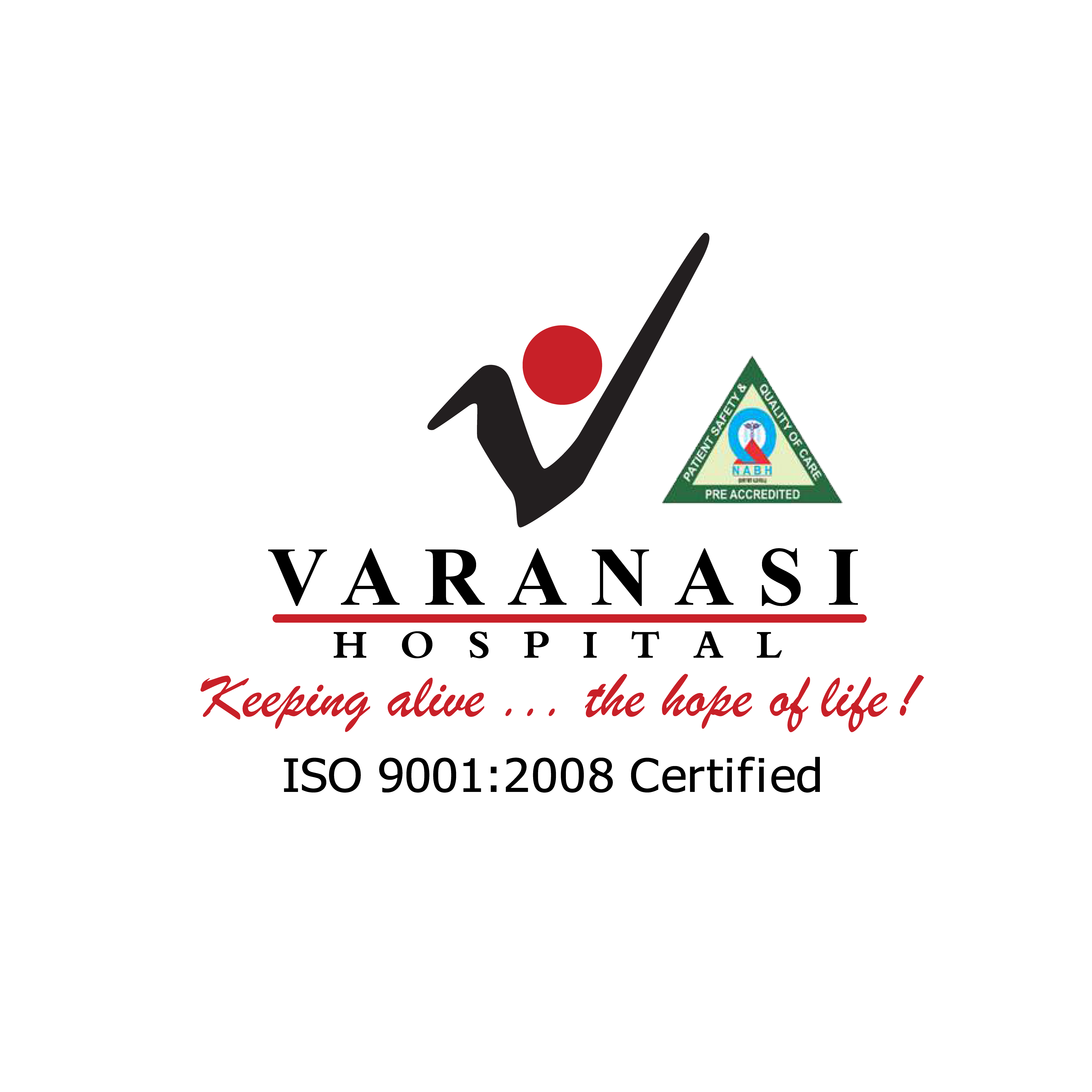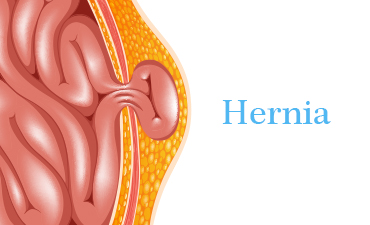Laparoscopic Hernia Treatment By Laparoscopic Surgery
We, at Varanasi Hospital, offer scar-less, painless and bloodless solutions to cure a hernia. We are equipped with advanced and updated tools to practice the most recommended, laparoscopic hernia surgery in Varanasi. During this surgery, 3 tiny (5mm) incisions are made in the abdominal area of the patient for executing the surgical procedure.
A hernia is a condition in belly wherein contents of abdomen bulges through its cavity wall. It may occur in any part of the abdominal area. It might originate from previous operations scars (Incisional Hernia) or groins (Inguinal Hernia). It is a fairly common disease and the only cure is by surgery, conventional/ open or laparoscopic hernia surgery.
The problem is minor at the initial stage but might grow to be a life-threatening problem, if left untreated. The bulges formed during a hernia require surgeries to be cured. Laparoscopic repair has replaced the traditional treatments because of more convenience and minimal pain, good cosmoses & early return to work.
What is a hernia?
A hernia occurs when a fatty tissue bulges out of a weak spot in a surrounding muscle or connective tissue called fascia. Hernias are most common in the abdomen followed by groin, belly button or upper thigh.
What are the different types of a hernia?
The different and main types of a hernia include the following:
An inguinal Hernia: An Inguinal hernia is the most common type of a hernia in men. It occurs when a part of tissue or bowel bulge out through the abdomen into the groin. About 80% of hernias belong to this type. There are two types of an inguinal hernia, slightly different from each other – direct and indirect.
A Femoral Hernia: A Femoral hernia is the most common type of a hernia in women especially those who are pregnant or obese. It occurs when the tissue enters the groin and appear as a lump at the top of the inner thigh.
An Incisional Hernia: An Incisional hernia is most common in elderly or overweight people who remain inactive after an abdominal surgery. It occurs when the tissue pushes through a previously made incision during a surgical operation in the abdomen.
An Umbilical Hernia: An Umbilical hernia is also one of the most common types of a hernia in newborns, obese women or those with many children. It occurs when the tissue pushes through the abdomen and appear as a round lump of fat pushing out the belly button.
A Hiatal Hernia: A Hiatal hernia occurs when a part of the stomach pushes up through the diaphragm into the chest cavity. This type of a hernia mostly affects people over 50 years old.
The others include epigastric, spigelian, muscle hernias.
What are the common signs and symptoms of a hernia?
A hernia is different from each other. There are different signs and symptoms of the different types of hernias. However, some common ones are as follows:
- Pain in the abdomen or the groin when the patient is active such as while lifting the weight, bending over or coughing.
- A feeling of fullness or heaviness in the abdomen.
- The bulge goes back while sitting or lying down.
- Nausea, vomiting or fever.
- Constipation.
- Dull aching sensation.
What are the causes and risk factors of a hernia?
The common ones include obesity, heavy lifting, family history, coughing, straining during bowel movement or urinating, chronic lung disease, poor nutrition, smoking, overexertion, incorrect posture, enlarged prostate, and fluid in the abdominal cavity.
How is a hernia diagnosed?
The different ways of diagnosing a hernia include the following:
- Physical examination
- Endoscopy
- Barium X-ray
- Ultrasound
How is a hernia treated?
A surgery is required for hernia’s treatment. There are two main types of surgery that can be performed including open surgery and laparoscopic surgery. Open surgery is the general traditional way of the surgery and laparoscopic surgery is the modern and most preferred type of the surgery at present. Laparoscopic hernia surgery has taken the place of open surgery due to many advantages that it holds over the latter.
How are laparoscopic hernia treatment and surgery done?
In the laparoscopic hernia surgery, the abdomen is inflated with a harmless gas. Then general anesthesia is given. Thereafter 3 to 4 small incisions are made near a hernia. The laparoscope is inserted through one of the incisions in order to perform the surgery. The images from the inserted laparoscope guide the surgeon to repair a hernia with mesh.However, the type of the surgery chosen depends upon various factors including hernia size, type, and location. The patient’s lifestyle, health and age factors are also being considered while selecting the type of the surgery.
What are the advantages of laparoscopic hernia repair?
There are many advantages that a laparoscopic method holds over the traditional open method. These include the following:
- The patient recovers faster as he gets discharged within 24 hours of the operation and may resume the daily routing after 72 hours.
- The patient suffers less postoperative pain and fewer scars on the body.
How long does it take to recover from a laparoscopic hernia operation?
The discomfort goes away within few days. The patient can resume normal daily routine within a week. It’s important to visit your laparoscopic hernia surgeon for regular follow-ups after the surgery as per his instructions to avoid any complication, that may arise.
Is Laparoscopic hernia operation safe?
The laparoscopic hernia operation is safer than traditional surgeries as the procedure is less damaging to tissues surrounding the protrusion. A patient’s body receives less scars and recovers quickly from the surgery. A hernia might develop again if the surgical procedure is not practiced properly in the first instance. Prosthetic material (mesh) is used to prevent reoccurrence of a hernia.
Contact Varanasi Hospital for the best possible treatment of a hernia. Book your appointment online with us. We have made it easy for your convenience. We have been treating patients for a hernia successfully for many years. Dr. Manish Jindal is our experienced laparoscopic surgeon at Varanasi who gives personalized attention to each and every patient.



